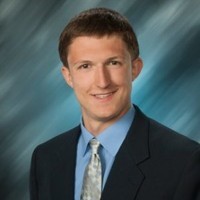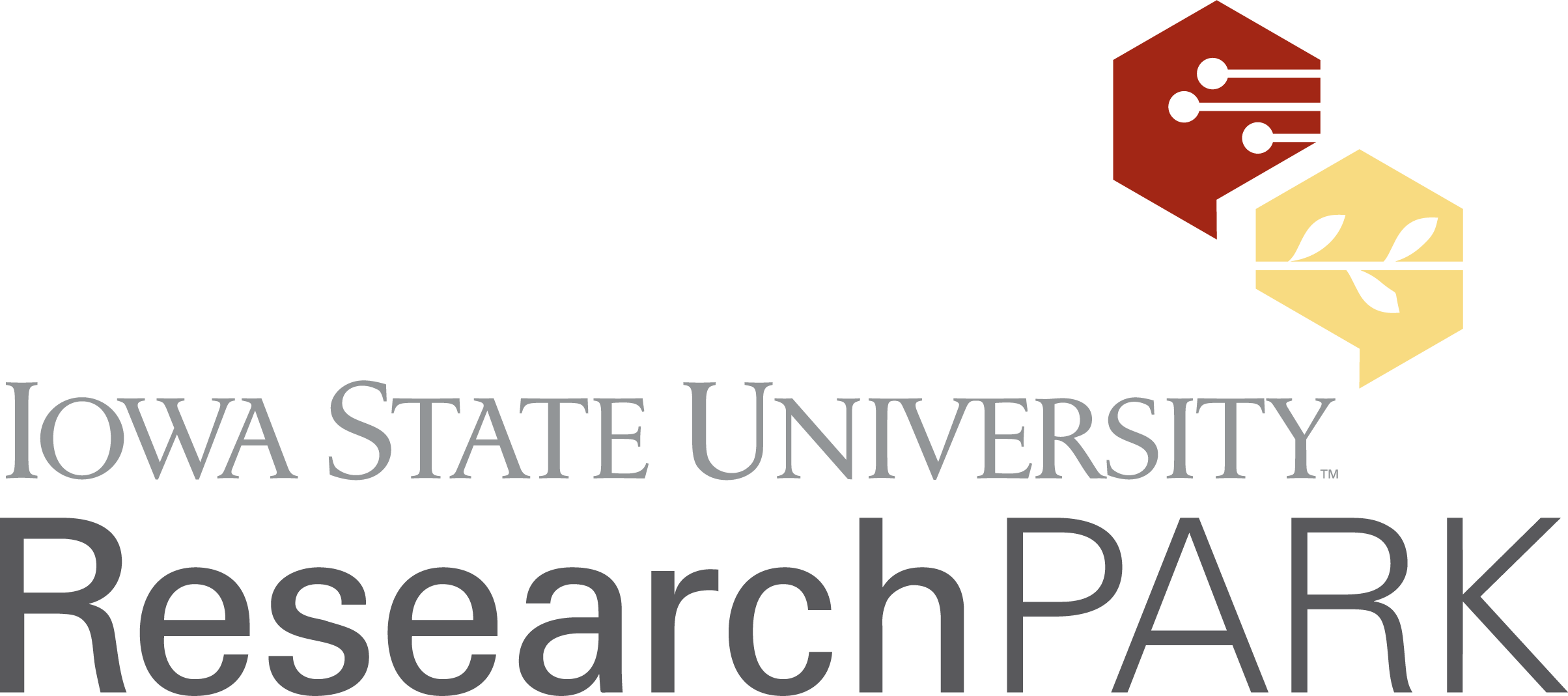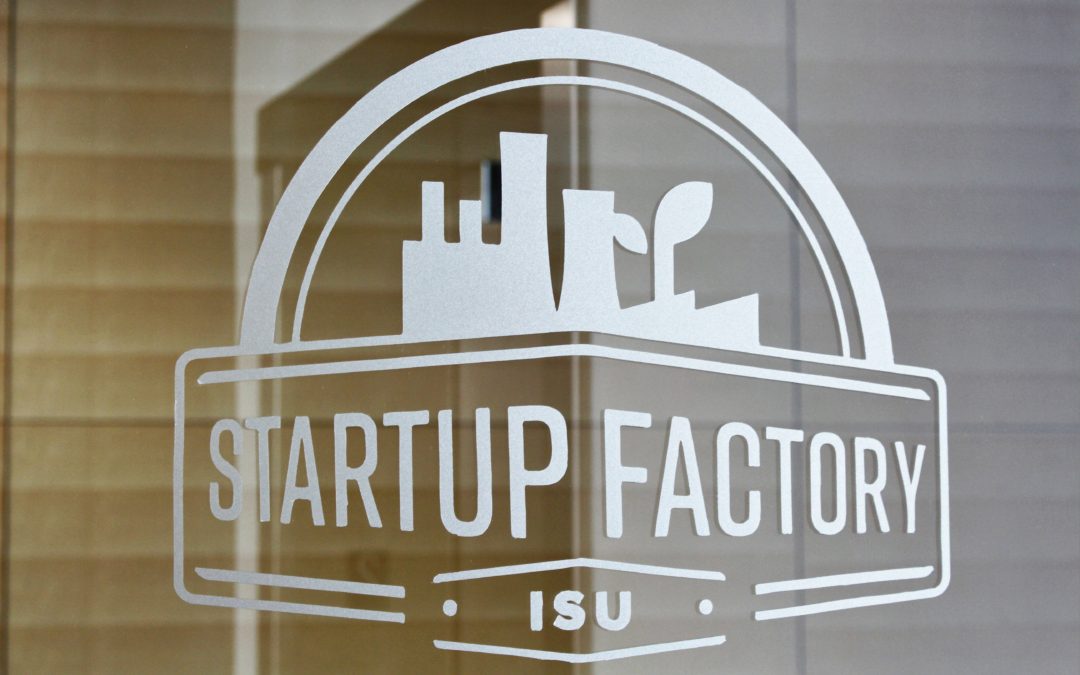If you had $5,000 to design a learning experience for yourself anywhere in the world, what would you do? That’s the question posed to Imagine Fellows at Luther College in Decorah, Iowa. For Zach Martin, a senior physics major at the college, the answer was to spend his fellowship at the ISU Startup Factory in the ISU Research Park exploring what it takes to productize a scientific discovery, create a successful startup and launch a product into the marketplace.

Luther Imagine Fellow, Zach Martin
The Imagine Fellowship comes with few restrictions—students have a lot of latitude in using the fellowship to pursue their own passions, the biggest caveat being that the experience has to happen off-campus. Martin said he chose to conduct his fellowship at the Startup Factory “because they have the resources to help me learn more about starting and running a business, which is knowledge I hope to use in the future.”
Considering Martin is currently studying particle physics, it may sound surprising he’s actually exploring the possibility of one day starting a business.
“True, there’s not a product development or ‘take it to market’ focus when you’re conducting particle physics research,” Martin said. “However, I’m planning on going to graduate school in either materials science research or an electrical engineering program, and within these disciplines, I can definitely apply what I’ve learned about taking research out of the lab and into the marketplace. Actually, this wasn’t even on my radar before—I wouldn’t say business or entrepreneurial interests come naturally to me the way science does, but my experiences at Iowa State have broadened my perspective on how I might combine my passion for science with a newly developed business mindset and create something really interesting.”
As part of his Imagine experience at the Startup Factory, Martin was introduced to some of Iowa State University’s vast resources, programs and people that support entrepreneurial startup ventures. At the Startup Factory, he met with and interviewed a number of the program’s cohort members, attended weekly programming sessions and sat in on a one-on-one meeting between a startup company founder and program mentors.
Martin also had the opportunity to attend a design workshop and Iowa State’s second annual NANO@iastate meeting, where he said he received “good exposure to really early-stage discoveries with commercialization potential.” While there, he started to envision possibilities for his own future. “Throughout the conference I could see that maybe I could have something to do with this—that is, take part in the translational development of a scientific discovery.”
Life-long lessons
Martin is originally from Boone, Iowa and is a 2015 graduate of Boone High School where he was a Governor’s Scholar and member of the boy’s swimming team where he received Iowa Boys Swimming Academic All-State honors—academic recognition for state swimming individual qualifiers. He continues to excel on the student-scholar-athlete path at Luther working towards his Bachelor’s Degree in physics, acting as a student research assistant, and participating on the varsity men’s swimming and diving team where he has been named a two-time Iowa Intercollegiate Athletic Conference (IIAC) Winter Sports All-Academic Team honoree.
Even after the regular school-year ends, Martin said he has always taken advantage of opportunities that further develop his education and interests. This year, he spent the first half of summer at the SuperKEKB accelerator in Japan as part of the Belle & Belle II experiment. The experiment exploits properties of B-mesons and aims to address some of the fundamental questions in particle physics today.
Of the experience Martin said, “I’d say that it was truly the experience of a lifetime. It was really cool to get to be in a foreign country to do work, and I definitely enjoyed the work we did. I also loved the international and collaborative environment at Belle and Belle II. It’s great to meet people from all around the world and see the research they’re doing.”
Not one to rest on his laurels, Martin made his way back to Iowa, rounding out his summer with the Imagine Fellowship experience at the Startup Factory.
“You could say I’ve had my hands pretty full with school, swimming and other activities, but that kind of discipline is what will prepare me for the future,” Martin said. “I’ve seen firsthand that same ‘doing it all’ mentality and taking advantage of resources and opportunities is required of someone who is starting up their own business. You have to become an expert in so many areas that push you beyond what’s in your comfort zone. As a student-athlete, you learn to push yourself, both mentally and physically. And the same goes for when you’re building a business, you’re always setting a new bar and stretching your personal limitations.”
Internship at SAFI-Tech
Martin got his first real exposure to the challenges of starting a business through another Startup Factory-related opportunity he was offered in summer 2016, as an applications intern with SAFI-Tech, a startup from the program’s inaugural cohort of graduates. SAFI-Tech is developing Liquital™, a technology that utilizes micron and submicron-sized supercooled liquid metal particles to solder without heating. The SAFI-Tech team is currently working on two manufacturing applications of the product: no-heat soldering for flexible electronics and 3-D metal printing for multi-material additive manufacturing.
“My internship with SAFI-Tech gave me the opportunity to learn in a framework like this [Startup Factory program] how it all works,” Martin said. “I learned a lot of things about business I never considered before. Like how important the customer discovery phase is and understanding the various steps involved in moving from working primarily in the lab to actually running the day-to-day operations of a business. And, importantly, how external funding helps a company throughout every stage of its business life cycle.”
An added bonus of the SAFI-Tech internship for Martin was the ability to make his own personal contributions to the project.
“I had a great summer working for SAFI-Tech,” Martin said. “It was one of the first jobs I’ve had where I actually got to apply scientific and engineering kinds of thinking to the projects I was working on. I was really thrilled when some of the research I did came together into projects I made, such as LED’s mounted on paper surfaces.”
Change of focus to customer development
Martin identifies with startup companies that start at the bench and have difficulty letting go of the product-development process to begin focusing instead on customer development.
“In particle physics, you are always hunting for evidence of new physics—it’s a process that just never ends,” Martin said. “What became really clear to me at the Startup Factory was the importance of developing a business model canvas—taking the ‘Lean Launchpad’ approach—basically, you have to set goals based on who your customer is, and maybe even make adjustments along the way. It takes discipline to not just set your focus on developing a product to an end-point. I’ve learned you have to be okay with getting your product to a stage where you can sell it, then look to develop it further after that point.”
Martin was referring to advice he heard Startup Factory President Bill Adamowski giving one of the current Startup Factory cohort members about his business.
“We like to tell our companies who are close to achieving their MVP [Minimum Viable Product], that that is the time to go out and talk to more customers,” Adamowski said. “Oftentimes, people get stuck in the mindset that they have to keep developing their product before they can offer it to customers. And that isn’t the case. You can improve upon your product indefinitely, which will never get your product to market—we tell our startups, what’s important is to identify your customers early on, and if you have something, get it to the stage you can sell it.”
The learning experience
Martin said he sees great value in the curriculum that is taught and relationships that are formed at the Startup Factory. “The formal training centered on business validation they receive and access to mentors who understand their particular business needs not only saves the startup companies so much time and effort—it gets them on the path of selling their product a lot quicker—it also helps them to launch and sustain a successful business.”
Martin said the fellowship at the Startup Factory more than met his learning experience expectations, but has the opportunity convinced him to start a business?
“I’m not sure what the future holds for me as far as starting a business,” Martin said. “It’s definitely something I’ve grown more interested in though, which is why I wanted to do the fellowship at the Startup Factory. And I can say that after this experience, I’m beginning to envision the possibility. I think I’ll be much more aware of looking at the commercial potential of a product or idea I’m working on and seeing things from a completely different perspective based on what I learned at the Startup Factory.”
###
Contact:
Julie Lelonek
Office of Economic Development and Industry Relations
515-294-1562/jlelonek@iastate.edu

